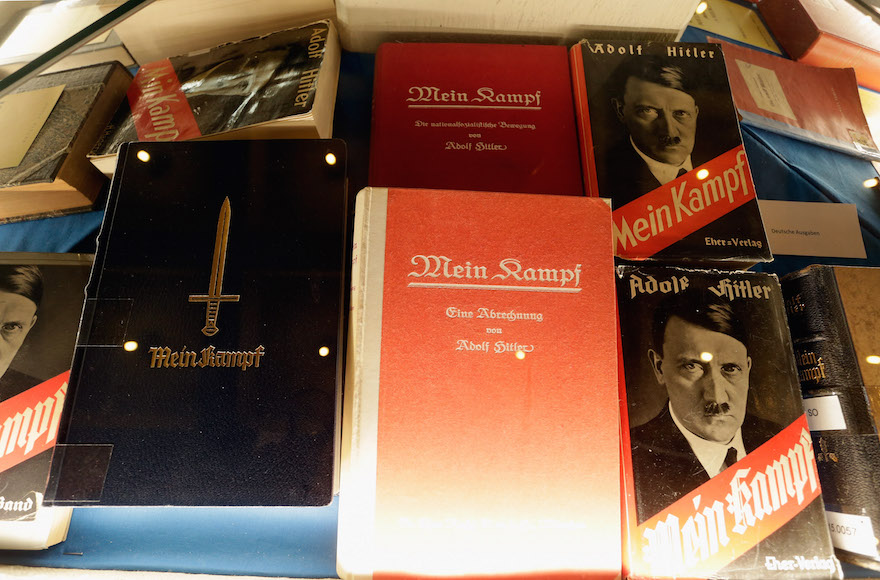BERLIN (JTA) — An annotated edition of Adolf Hitler’s notorious “Mein Kampf” hit German bookstores amid protest by some Jewish groups and endorsement by others.
The book release Friday, made possible through the expiration of the copyright and aimed at preempting unannotated re-publication, has prompted a new wave of pronouncements from Jewish leaders.
The new edition won’t help in the fight against hate and “should be left in the poison cabinet of history,” Ronald S. Lauder, president of the World Jewish Congress, said in a press statement Friday. Even an educational edition was unnecessary, he said, since the text is readily available elsewhere.
The head of the Central Council of Jews in Germany, however, reiterated his support. “I can well imagine that this critical, annotated edition will shed light on and demystify this book,” Josef Schuster told the German broadcaster NDR.
JTA ARCHIVE: Aug. 27, 1933: The ‘Logic’ of Hitler Anti-Semitism, As Explained In Its Leaders’ Books
Munich’s Institute for Contemporary History, which prepared and published the edition, hopes to help destroy the cult status of a book that is still used today around the world to spread racism and hate.
Institute Director Andreas Wirsching said the two-volume book, which features explications of every chapter and extensive commentaries in the margins, is expressly opposed to a “Hitler-centric” view of the Third Reich. Rather, it aims to illuminate the nationalistic underpinnings of the regime and the roots of Hitler’s ideas in German tradition.
“The regime cannot be explained by looking at Hitler alone,” Wirsching said at a press conference Friday.
The Munich-based institute originally received the contract to prepare the edition from the State of Bavaria, in order to preempt an expected wave of uncommented publication following the expiration of the copyright this year. It is intended for use by scholars, and there are plans to use excerpts in high school classes for students over age 16.
Bavarian Jewish leader Charlotte Knobloch, who used to head of the Central Council, is also opposed to the new edition. She recently said about the book that “this deeply anti-Jewish diatribe — of all texts — does not belong in the classroom.”
JTA has documented Jewish history in real-time for over a century. Keep our journalism strong by joining us in supporting independent, award-winning reporting.






